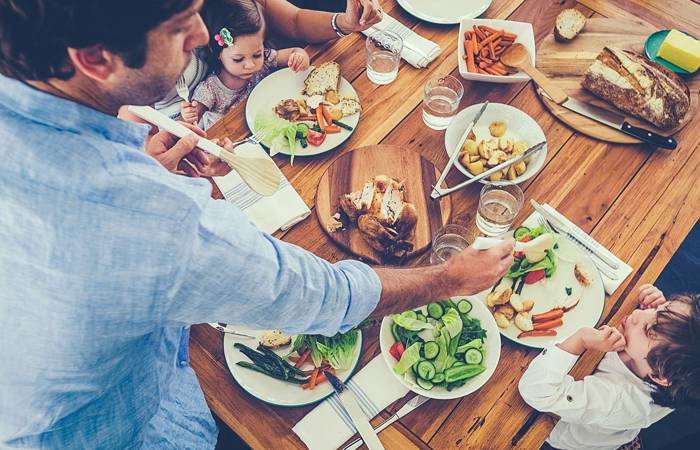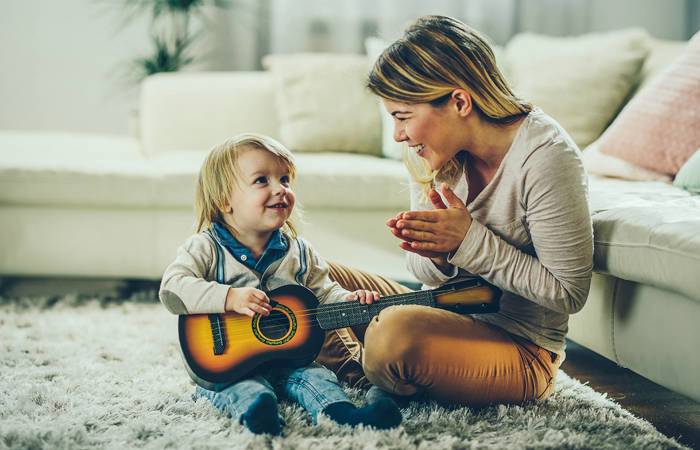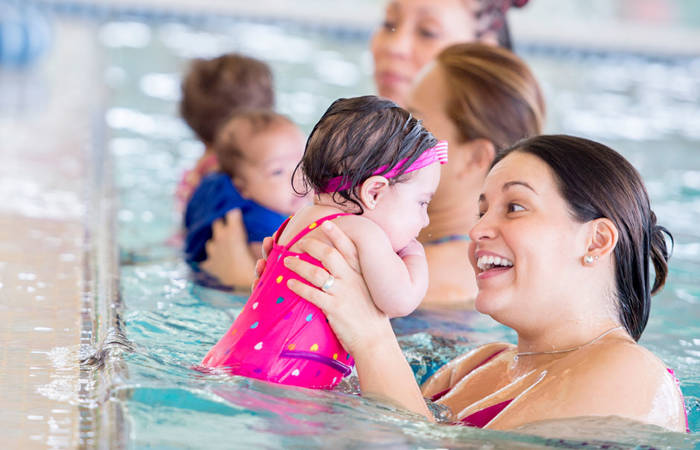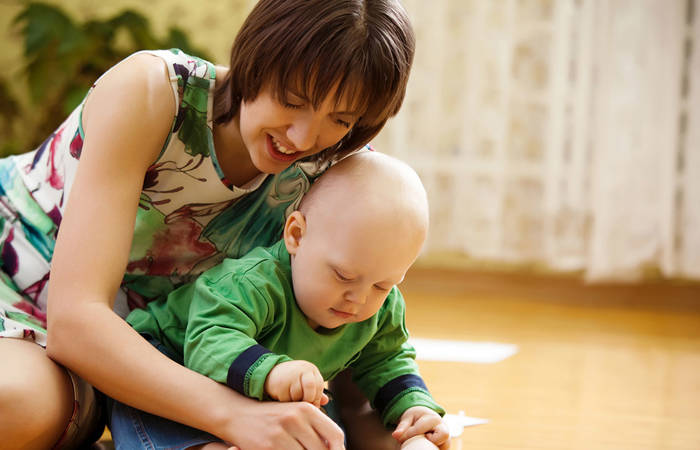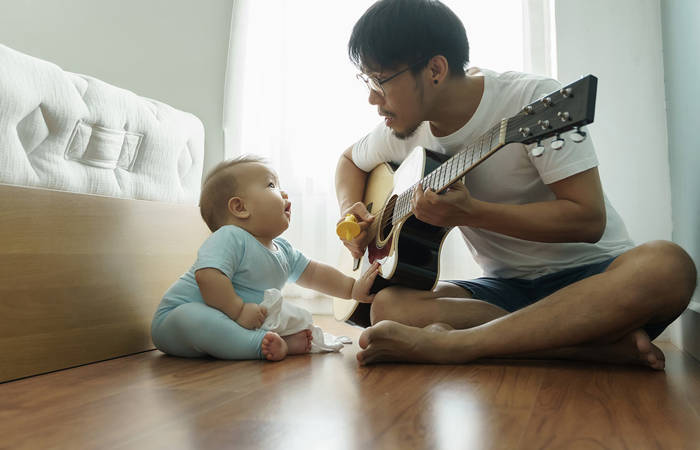Like what you see?
Sign up to receive more free parenting advice.
Thank you for subscribing to our newsletter!
Child Development
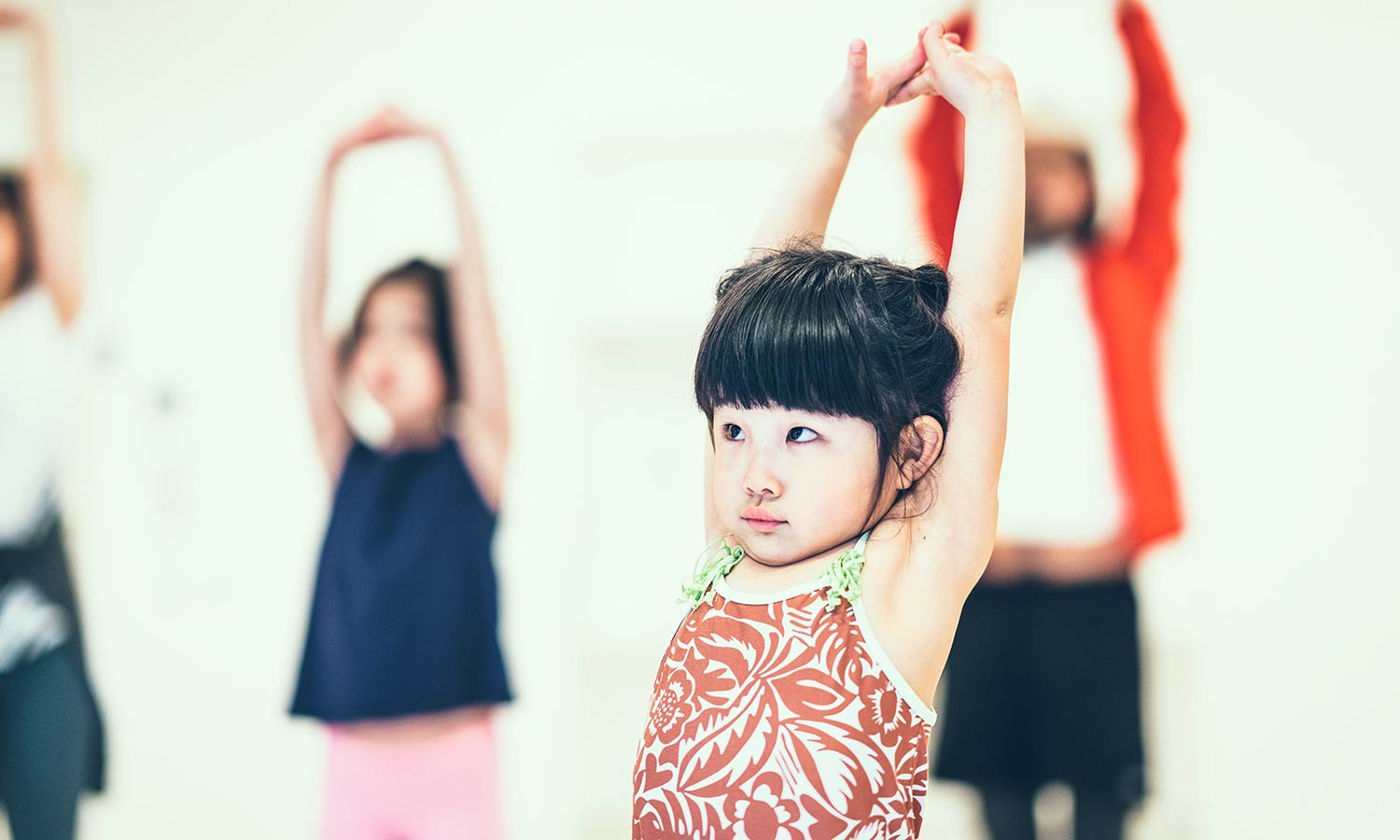
Credit: iStock.com/recep-bg
While the sometimes tragic results of poor body image are most evident in teenagers, research shows that damaging seeds can be sown much earlier. Parents often don’t realise just how soon young children begin thinking about body image.
“Many people would assume three or four is a bit young to be thinking about body image,” says Dr Siân McLean, an Honorary Research Fellow at La Trobe University and Research Fellow in the Institute for Health and Sport at Victoria University.
Dr McLean’s research on body image looked at children as young as three years old and found out opinions and biases around size begin at this early age.
As part of the study, researchers presented children with felt dolls in different sizes ranging from very thin to obese.
“We asked children which doll they would invite to their birthday party or which would be teased, and we invited them to identify characteristics associated with those body sizes; for example whether they were lazy, or mean or fun,” Dr McLean says.
Results demonstrated that both boys and girls were biased against larger figures relative to smaller figures – they selected thinner figures for positive characteristics and fatter figures for negative characteristics.
“We looked at the development of weight-bias attitudes and found even at age three young children do have a bias according to size,” says Dr McLean, noting that this bias increases as children age, meaning that five-year-olds showed a stronger size bias than three-year-olds.
In some ways, the results came as no surprise to researchers.
“It’s really showing that young children reflect our society: these are the biases adults hold too,” says Dr McLean.
The findings, summarised in the Children’s Body Image Development Study (CBIS), conducted by the EMBodIED Research team at La Trobe University, were based on interviews with 278 children from across Melbourne.
Similar results have been found in international studies. In the USA, non-profit group Common Sense is dedicated to helped children thrive in a world where media in all its forms can create unrealistic expectations about how our bodies should look. Its ongoing research has revealed that children as young as five are already anxious about their body size.
The organisation issued a 56-page report capturing and summarising existing studies into how children view their bodies, partly based on what they view in assorted media. The document revealed that nearly a third of children aged five to six would choose a body size thinner than their current size.
If someone has said something negative [in front of your child], like ‘people are fat because they can’t stop eating’, you might be able to jump in and say, ‘Actually, people’s body sizes are different for all sorts of reasons and that’s okay’.Dr Siân McLean
Stay up to date with the latest news and articles from First Five Years
Thank you for subscribing to our newsletter!
Body image is learned
One of the report’s key findings was that body image is learned, and that even by the time children enter preschool they are aware of body issues and methods to control body size and appearance.
Report author Dr Seetha Pai said body image was integral to children’s sense of self-worth and where they fitted in the world, and it had a crucial impact on their wellbeing.
She was particularly concerned with a finding that by age seven, one in four children had exhibited some kind of dieting behaviour, and said it was alarming to think that children under five were already forming ideas about restricting food intake.
Dr Pai said that, contrary to some thinking, the problem was not just “a girl thing”, with an increasing number of boys also presenting with very early body image concerns.
Common Sense researchers followed up the report in January with a look at the different ways boys and girls are affected by media’s portrayal of unrealistic body types. They found that most boys, unlike girls, didn’t want to get “skinny”, but instead wanted to “bulk up” at a very young age.
How can parents help?
While Dr McLean says it’s important for parents to be aware of what children are watching and absorbing in the media, there is a lot more parents can do to teach their children about positive body image.
Part of the solution comes with emphasising health, not weight, and in teaching an appreciation for all shapes of bodies.
“Parents are a filter and will be well aware that they can’t stop everything creeping in: these influences aren’t only in the media but can come from extended family and other sources too,” Dr McLean says.
If someone says an inappropriate comment about body size, parents can step in and play an important role.
“If someone has said something negative [in front of your child], like ‘people are fat because they can’t stop eating’, you might be able to jump in and say, ‘Actually, people’s body sizes are different for all sorts of reasons and that’s okay,’” Dr McLean says.
The importance of modelling positivity
Dr McLean notes that parents have another an important role: modelling positivity about their own body in front of their children.
“If you find yourself concerned about your own body, don’t heave a big sigh in front of them. We appreciate parents might be thinking these things, but it’s important not to show it,” Dr McLean says.
She also says parents shouldn’t visibly undertake weight loss diets in front of young children, or constantly stand on the scales.
“We don’t want children to equate food as good or bad: foods might taste different, but none are bad,” Dr McLean says.
Finally, find things to talk about that aren’t related to children’s bodies.
“Focus on their other qualities. It’s so automatic for a little girl to walk into a room and people say, ‘You are so cute, what a lovely dress.’ What else can we say? Children have so many more qualities and parts of themselves we should be focusing on. Set that up right from the word go,” Dr McLean says.
Top tips for parents on promoting good body image
- Start young: toddlers are listening and beginning to form opinions on body size from as early as three so make sure the messages you send are positive.
- Keep your own body image concerns to yourself. Instead, express positive responses about all sized bodies.
- Focus on other things besides how children look to help shift society to a place where size bias doesn’t play a role for both children and adults.
- Step in if others say something inappropriate. This will help your children develop their own healthy attitudes about body image.
Useful resources:

